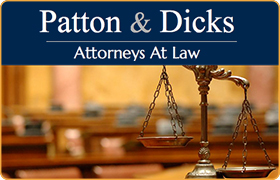 River Ranch RICO Act Lawyers, Florida
River Ranch RICO Act Lawyers, Florida
Sponsored Law Firm
-
 x
x

Click For More Info:
-
Patton & Dicks
465 East Main Street Bartow, FL 33830» view mapCriminal Defense, Criminal Appeals Real Attorneys Fighting For Real People
As Criminal and DUI Attorneys, we defend peoples rights in criminal courts. Find out how our services can help your situation.
863-225-3550
Not enough matches for River Ranch RICO Act lawyer.
Below are all River Ranch Criminal lawyers.
Lawyers
1-5 of 5 matches
Criminal, Consumer Rights, Medical Malpractice, Accident & Injury





 About MeMore Info
About MeMore Info PracticesPatton & Dicks
PracticesPatton & Dicks